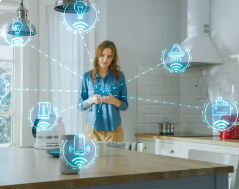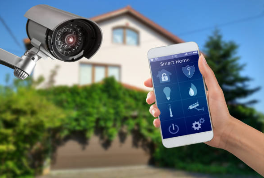Smart Home Technology and IoT Devices: Embracing the Future
As we delve into the world of smart home technology and IoT devices, we find ourselves at the forefront of an exciting transformation. These innovations are not just futuristic concepts; they promise to enhance our daily lives with greater convenience, improved security, and sustainable living options. While challenges do exist, the benefits of integrating smart home technology are compelling and undeniable. Join us as we explore how you can make your home smarter and embrace the comforts of this new era.
What’s New in Smart Home Technology?

-
Increased Interconnectivity Among Devices
One of the most significant advancements in smart home technology is the ability of devices to communicate seamlessly. Thanks to standards like Matter, devices from various manufacturers can work together. This interconnectivity allows for a cohesive ecosystem where everything from your smart thermostat to your coffee maker can be controlled with a single command.
-
AI Integration in Home Automation
Artificial intelligence (AI) is becoming a crucial element in smart homes. AI is not just a feature but a fundamental part of home automation. For instance, smart thermostats will learn your schedule and adjust temperatures accordingly, making your home more efficient and comfortable.
-
Enhanced Home Security Systems
With the rise of smart home devices, home security is more advanced than ever. AI-driven cameras and smart locks can recognize familiar faces and alert homeowners to unusual activities. These features provide peace of mind and enhance the overall safety of your home.

-
Focus on Energy Efficiency
Sustainability is increasingly important, and smart home technology is stepping up to help. Devices that monitor energy use can help you save on utility bills while reducing your carbon footprint. Imagine receiving real-time data on how much energy your appliances consume, allowing for smarter decisions.
-
Voice and Gesture Control
Voice-activated technology is becoming the norm in smart homes. Whether you want to dim the lights or play music, you can do it hands-free. Gesture control is also emerging, making interactions with your devices even more intuitive and natural.

Why Choose Smart Home Devices?
Health Monitoring Capabilities
Smart home technology is increasingly integrated with health-monitoring devices. Wearables can track your health metrics and sync with your home systems to create an environment conducive to well-being, like optimizing air quality and lighting.
Convenience and Automation
Smart home devices streamline various tasks, making life easier. From scheduling your coffee maker to turn on in the morning to having your lights adjust automatically, these innovations save time and enhance daily routines.
Improved Home Security
With smart security systems, you can monitor your home from anywhere using your smartphone. Whether you’re at work or on vacation, you can check in and ensure everything is secure, providing an extra layer of protection.
Cost Efficiency Over Time
While the initial investment in smart home devices may be significant, the long-term savings can be substantial. Energy-efficient appliances can lower your utility bills, and smart sensors help prevent costly issues with proactive alerts.
Challenges to Consider
Interoperability Issues
Despite advancements, some devices may face compatibility challenges, leading to a fragmented experience. Ensuring your devices can work together smoothly is essential for a fully integrated smart home.
Dependence on Internet Connectivity
Smart devices heavily rely on stable internet connections. If your internet goes down, so does the functionality of your smart home. Future designs will need to consider offline capabilities to maintain usability during outages.
Adopting smart home technology and IoT devices significantly enhances your living environment. These advancements offer improved convenience, security, and sustainability for modern lifestyles.



